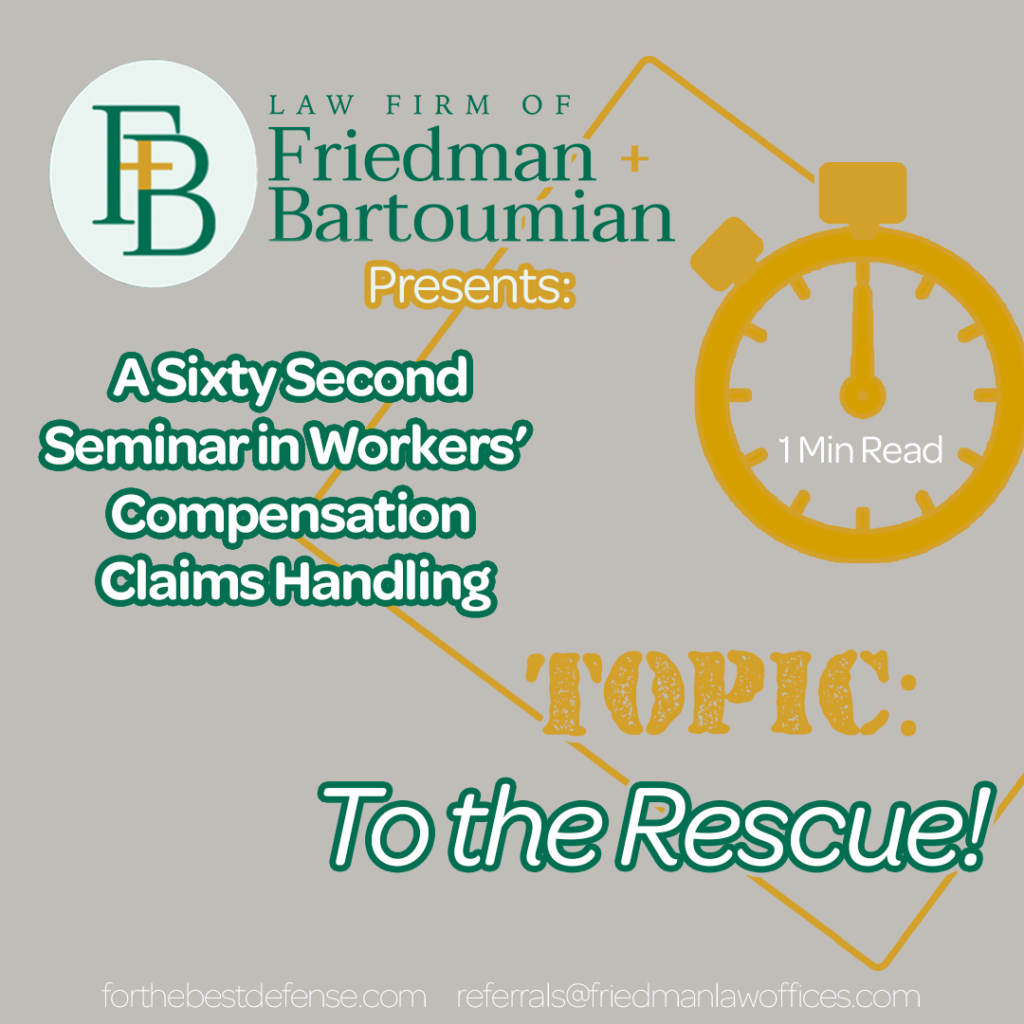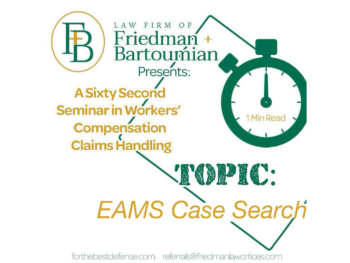
Today’s blog centers on a farm hand who was injured at work while using a tractor to plow a field. The accident occurred when the tractor tipped over onto its side as the employee drove over a dirt mound. The worker ended up pinned beneath it. A tow truck was called to lift the tractor off the farm hand where he was then transported by ambulance to a local hospital. A work comp file was created by the insurance carrier where a short time later three bills arrived from the ambulance company, the hospital, and the tow truck firm. Pursuant to standard claims procedure, all three invoices were forwarded to bill review for analysis. As anticipated, bill review commented that the state’s official medical fee schedule did not apply to the tow truck bill, and therefore, a discount could not be taken. However, the fee schedule did apply to the other two invoices. The claims adjuster then paid all three invoices pursuant to the recommendations issued by the bill review department.
That’s the story. Did you spot the claims handling oversight? It occurred when the adjuster paid the tow truck bill, as this nature of charge is not compensable under work comp law. Instead, the adjuster should have forwarded the bill to the employer for payment. The reason the invoice is not compensable is because the services provided are not considered medical treatment. Instead, they are legally classified as “rescue” costs, which of course, is not a covered benefit under work comp law. It makes no difference that a tow truck was needed to free the worker to provide medical care. The invoice is still the employer’s responsibility under its legal obligation to rescue its employees.
For those who doubt the tow truck bill is not compensable then consider the following scenario. Suppose a coal mine accident occurs where a cave-in traps 30 miners hundreds of feet underground, where a handful of trapped miners are injured and in need of medical attention. Shortly after the cave-in a large group of employees, volunteers and emergency responders arrived on the scene. Heavy equipment is brought in. Hundreds of work hours are spent attempting to free the 30 workers, including the drilling of a parallel rescue shaft to supply oxygen, food, and other equipment to the trapped miners. It takes a week before everyone is freed, and it comes at a hefty cost of several million dollars. Is work comp going to pay the multi-million-dollar rescue bill? Of course not. Workers’ compensation is not a proper resource for the payment of such expenses, even though rescue services were necessary to enable the trapped miners to receive medical treatment. Again, rescue costs are not a covered benefit under the workers’ compensation act, nor insured under a standard policy of workers’ compensation insurance.
As far as we have determined there has been only one Appeals Board decision addressing this topic, which was issued more than 25 years ago. Like in our example today, in that matter the Board denied the compensability of a tow truck bill who services led to the rescue of an injured worker.
Though we don’t compare ourselves to emergency responders, in a way, we at Friedman + Bartoumian are like rescue workers every time we are called upon to assist our friends and clients on a moment’s notice. The perils of the workers’ compensation system are real, where situations quite often arise requiring rescue through legal intervention. When those times arise feel free to contact us!


 Overpaying PTD: A 60-Second Seminar in Workers’ Compensation Claims Handling
Overpaying PTD: A 60-Second Seminar in Workers’ Compensation Claims Handling
Leave a Reply